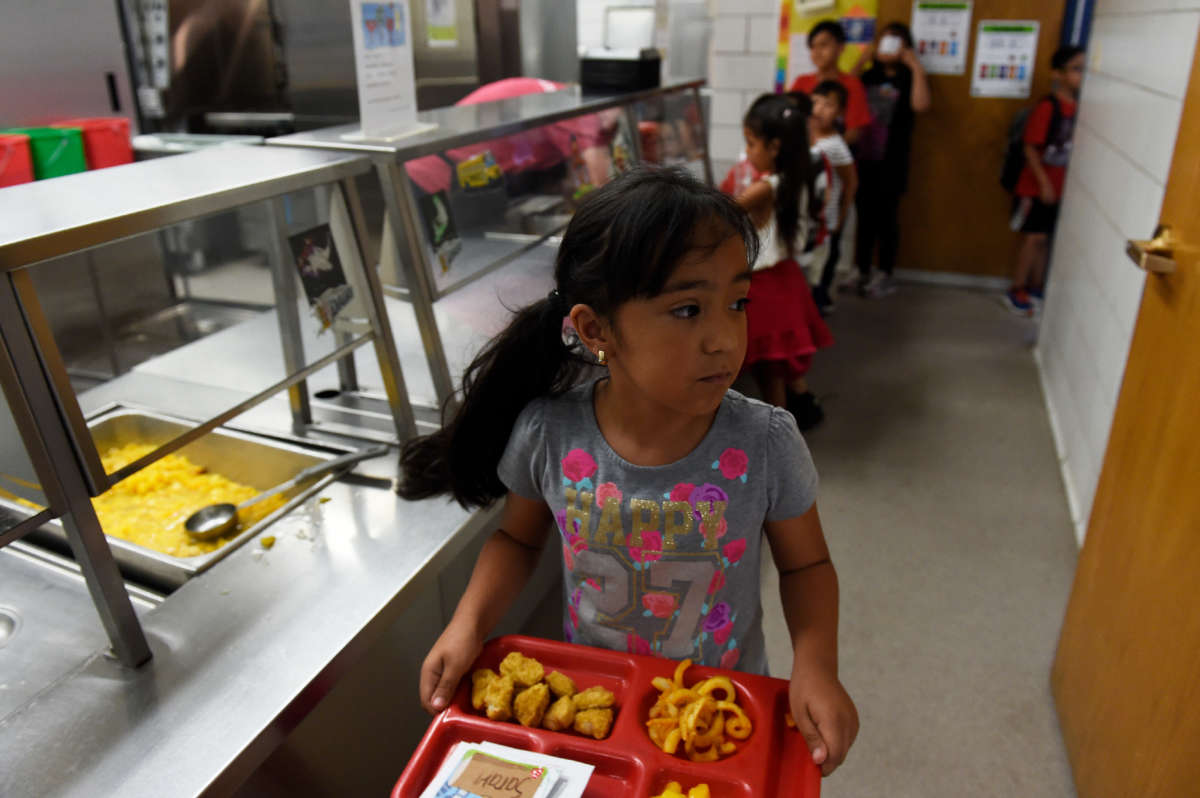A ballot measure to create a universal free school meals program by reducing tax breaks for the wealthiest residents in Colorado has easily passed after federal lawmakers allowed a universal free lunch program to expire earlier this year.
Proposition FF has officially passed, according to a call by The Associated Press on Wednesday, with about 55 percent of voters in favor and 45 percent against with 88 percent of the vote in, per the New York Times.
The Healthy School Meals for All program will raise $100 million a year to provide and pay for meals in public schools, which advocates say will be crucial in lessening the burden of food insecurity for tens of thousands of students across the state.
The funding will be raised by a reduction in the state tax deduction that can be taken by people making more than $300,000 a year, which will increase their taxable income. This will affect about 114,000 households or about 5 percent of tax filers in the state.
The establishment of the program will allow about 60,000 Colorado students who can’t afford school meals but whose families don’t qualify for meal waivers to access meals, according to advocates. Students from any financial background will be able to access the meals, which proponents say will be healthy and made with local products.
“This is a massive victory for hungry children,” public policy director for Hunger Free Colorado Ashley Wheeland told the Denver Post. “The Prop FF campaign began and finished as a community-based effort with grassroots and advocacy organizations, non-profits, education service providers and educators sharing their own stories of how school meals for all would help thousands of Colorado children get the food they need to learn.”
Advocates say the universality of the program is crucial because it helps to dispel the stigma that may be faced by students whose family incomes qualify them for free school meals under the existing program.
The measure had been put on the ballot by the Democratically-controlled state legislature. Many districts in the state had seen an uptick in students eating lunch at school when they were provided for free under the federal universal school meal waiver program.
That program expired this June after leaders in Congress did little to attempt to renew it. Some Democrats had pushed to extend the waivers, saying that they had only grown more important as inflation caused grocery and food prices to skyrocket this year.
The program had allowed about 10 million children across the country to access free meals — in some cases, breakfast, lunch and dinner — and appeared to have led to drops in child food insecurity in 2020 and 2021, along with provisions like the expanded child tax credit.
Though advocates still push for the return of the federal school meal program, Colorado will now join states like California and Maine that implemented statewide programs after the federal program’s expiration this summer. Other states, like Vermont and Nevada, have passed legislation that will extend free school meals for the current school year but have not made the programs permanent.
Join us in defending the truth before it’s too late
The future of independent journalism is uncertain, and the consequences of losing it are too grave to ignore. To ensure Truthout remains safe, strong, and free, we need to raise $46,000 in the next 7 days. Every dollar raised goes directly toward the costs of producing news you can trust.
Please give what you can — because by supporting us with a tax-deductible donation, you’re not just preserving a source of news, you’re helping to safeguard what’s left of our democracy.
